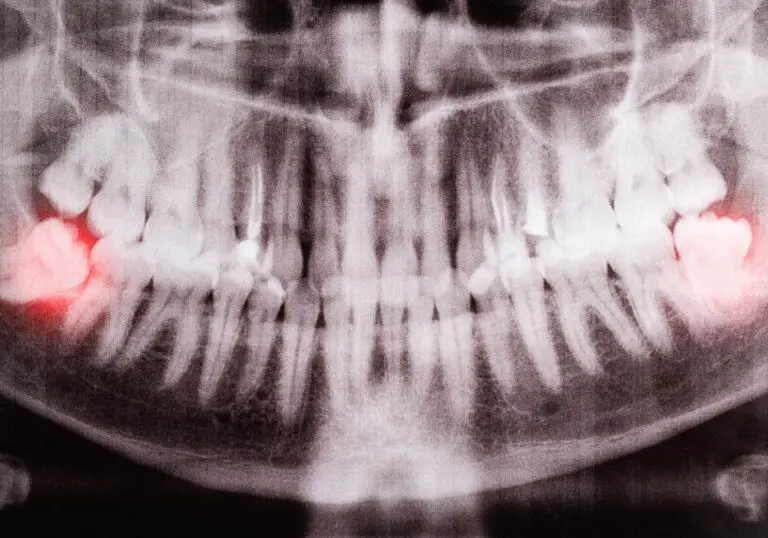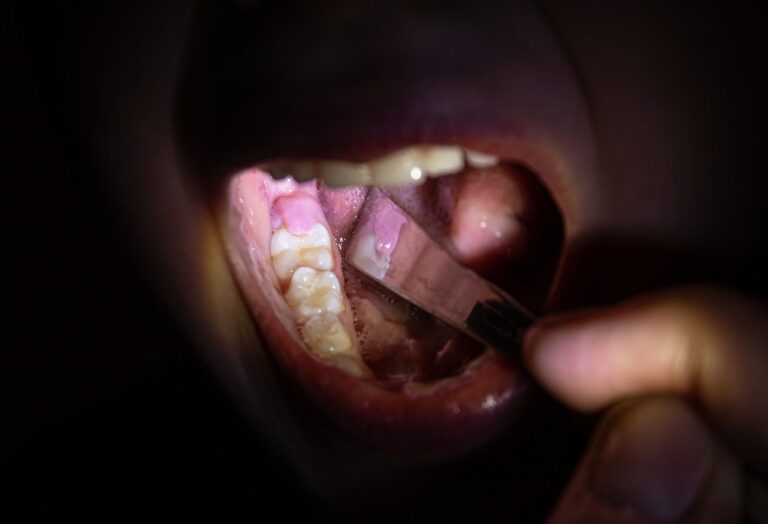The old saying goes that eating an apple a day keeps the doctor away. But is there any truth to the idea that apples can fight cavities and improve dental health? Apples do contain some components that benefit oral hygiene. However, their impact is relatively small compared to proper brushing, flossing, and professional cleanings. While apples promote overall wellness, relying on them as your main cavity-fighting tool is insufficient. With the right dental habits, apples can play a supporting role in preventing tooth decay.
How Cavities Form?
Before analyzing apples’ effects, it helps to understand how cavities develop. Cavities form when acids interact with your tooth enamel.
Enamel is the protective outer layer of your teeth. Enamel is made of hydroxyapatite crystals that contain calcium and phosphate.
Acids are present in foods you eat and from bacteria in your mouth. Plaque is a sticky film of bacteria that adheres to your teeth. Certain bacteria produce acids as they digest sugars and carbs from your diet.
These acids break down enamel in a process called demineralization. Demineralization leaves tiny weaknesses in your enamel that expand into cavities over time.
Do Apples Help Fight Cavities?
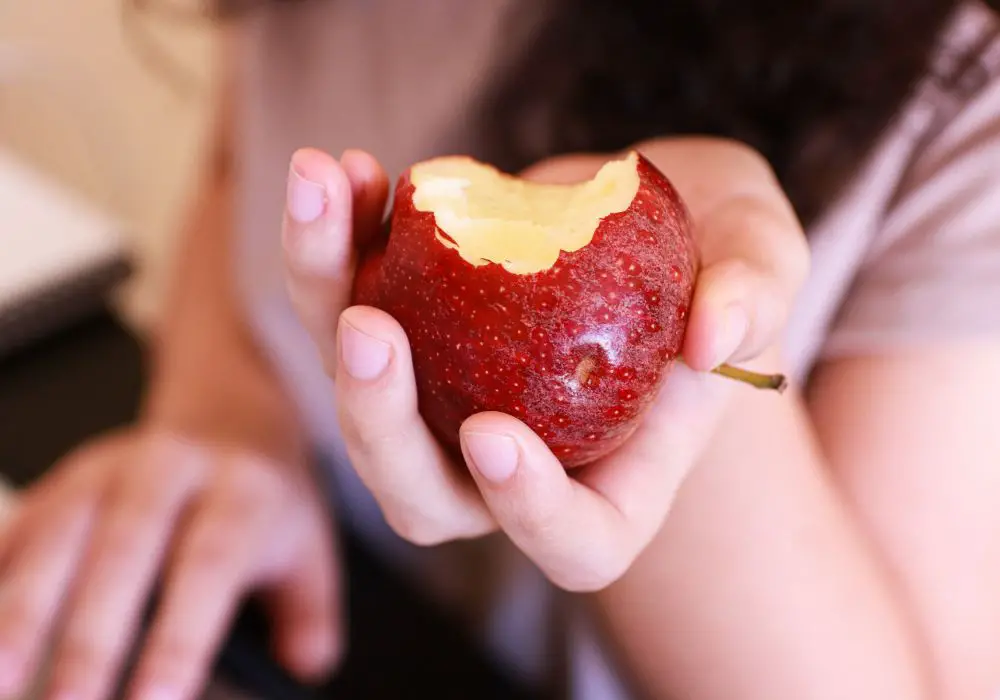
Apples have some components that may help battle cavities to a small degree. However, apples lack the power of proven cavity fighters like fluoride and xylitol. Here’s an overview of apples’ potential cavity-fighting capabilities:
Low Sugar Content
Apples contain natural sugars, but not at high concentrations like you find in dried fruits or juices. With less sugar to feed bacteria, apples may not drive extensive acid production and demineralization.
However, all fruits have some sugars, so apples are not significantly better than other fresh fruits in this regard.
Stimulate Saliva Flow
Chewing apples prompts increased saliva production. Saliva helps buffer acids and rinse food particles away. This flushing action could lower cavity risk.
However, any fibrous food will boost saliva—not just apples. Other fruits, veggies, nuts, and seeds offer similar effects.
Provide Vitamin C
Vitamin C is needed for healthy gums and quick healing. If gums are weakened, teeth become looser and more prone to cavities between the tooth and gum line.
But you can get vitamin C from many other foods besides apples, including:
- Citrus fruits
- Tomatoes
- Leafy greens
- Bell peppers
- Broccoli
So apples are not unique sources of important vitamin C.
May Contain Polyphenols
Polyphenols are micronutrients packed with antioxidants. Some research indicates apple polyphenols may inhibit bacterial biofilm formation.
Biofilms are clusters of plaque bacteria adhered to your teeth. Limiting biofilms could potentially hinder cavity development.
However, polyphenol concentrations can vary greatly, even between different apples. And more research is needed to prove polyphenols conclusively prevent dental caries.
Why Apples Alone Can’t Prevent Cavities?

While apples provide some benefits, relying on them as your sole cavity fighter just doesn’t work. Here’s why apples come up short:
- Contain acids – All fruits are acidic, including apples. Their malic and ascorbic acids could erode enamel over time.
- No fluoride – Fluoride is the #1 cavity fighter. But apples don’t contain any.
- No antimicrobials – Apples lack xylitol and other natural antimicrobials that restrict cavity-causing bacteria.
- Can’t replace brushing – Biting and chewing apples removes some plaque but not as effectively as dedicated brushing and flossing.
- Insufficient quantities – You’d have to eat large amounts of apples all day to get meaningful polyphenol, vitamin C, or saliva benefits.
- Lack long-term benefits – Any positive impacts are temporary. As soon as you stop eating apples, the effects disappear.
For these reasons, apples alone cannot adequately prevent cavities or strengthen enamel. Their pros don’t outweigh their cons by a wide enough margin. Simple apple consumption is no substitute for proper oral hygiene and dental treatments.
Combining Apples and Dental Care for Cavity Prevention
While apples are an insufficient cavity fighter alone, combining apples with proper dental care can support oral health. Here are some tips for benefiting from apples without jeopardizing your teeth:
- Eat apples with meals – The saliva boost during meals helps neutralize apple’s acidity before it damages enamel.
- Wait to brush – Don’t brush right after eating apples. Acids soften enamel, so wait at least 30 minutes before brushing.
- Rinse mouth after eating – Swish water in your mouth to wash away apple debris and acids.
- Practice regular hygiene – Brush 2x daily with fluoride toothpaste and floss once daily. This removes plaque apples miss.
- Get treatments – Ask your dentist about supplemental fluoride, sealants, or antimicrobial rinses.
- Limit apple juice – The sugars and acids concentrate in juice form, making it worse for teeth than whole apples.
With smart dental habits and fluoride exposure, occasional whole apples may support your oral health rather than erode enamel. But relying on apples alone simply doesn’t provide enough cavity protection.
The Most Effective Cavity-Fighting Tools
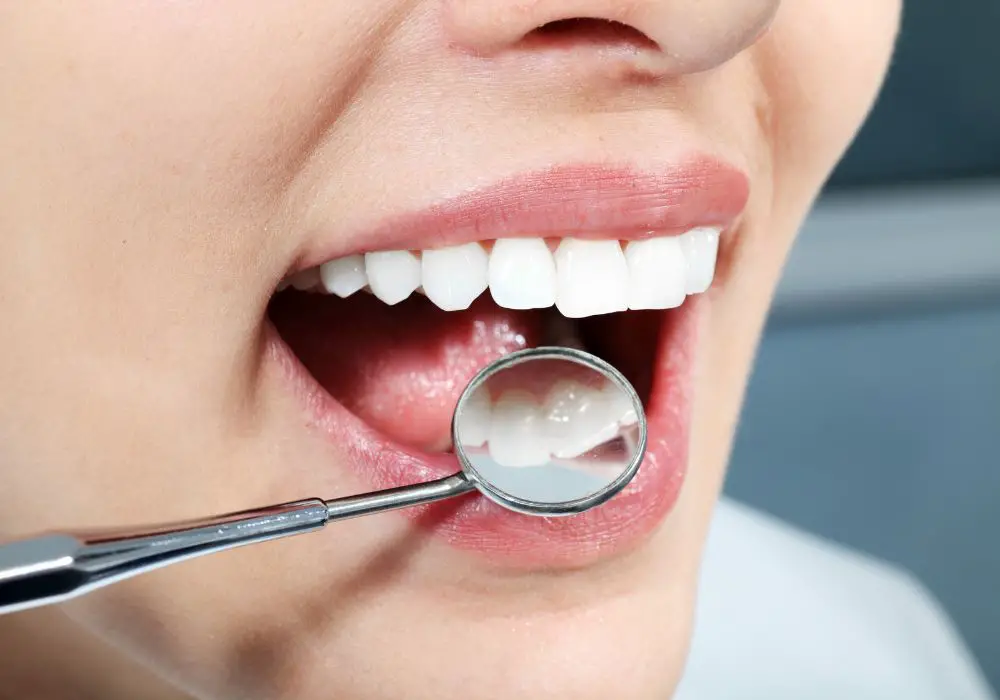
If you want to prevent cavities, look to these proven dental products and treatments instead of just apples:
Fluoride Toothpaste
Fluoride is the recommended cavity fighter. It remineralizes weakened areas in enamel and makes teeth more resistant to acid attacks. Look for toothpaste with at least 1350 ppm fluoride.
Xylitol Gum/Mints
Xylitol is a sugar alcohol that inhibits cavity-causing streptococcus mutans bacteria. It’s found in many gums, mints, and oral care products. Studies show xylitol reduces cavity risk.
Chlorhexidine Rinse
Chlorhexidine gluconate rinses combat plaque formation between teeth. Rinsing daily with chlorhexidine limits bacteria activity.
Professional Cleanings
Regular dental cleanings remove plaque and tartar apples leave behind. Professional removal prevents mineral loss far better than apples.
Sealants
Sealants are protective plastic coatings applied to the chewing surfaces of back teeth. Getting sealants placed is an easy way to shield vulnerable pits and grooves from cavities.
Talk to your dentist about tailoring an anti-cavity regimen with proven protectants like these for robust defense against tooth decay.
Should Kids Eat Apples to Fight Cavities?

Apples make a healthy snack for kids, but just eating apples is inadequate for preventing childhood cavities. Here are some key points for parents:
- Apples help clean emerging teeth and gums when infrequently eaten. But leaving apple bits in the mouth prolongs acid exposure.
- Wipe down gums with a wet washcloth after eating instead of brushing to avoid damaging young enamel.
- Avoid apples and apple juice at bedtime or naptime. Saliva flow is lower, so acids linger on teeth longer.
- Stick with whole apples instead of juice. The sugars and acids concentrate more in juice.
- Ensure kids brush twice daily with kid-safe fluoride toothpaste. Flossing should start once two teeth touch.
- Schedule kids’ first dental visit by age 1, and every 6 months thereafter for preventive care.
While apple snacking is fine in moderation, emphasize brushing habits and fluoride to prevent baby bottle decay and childhood cavities. Apples alone are inadequate protection.
Common Questions about Apples for Dental Health
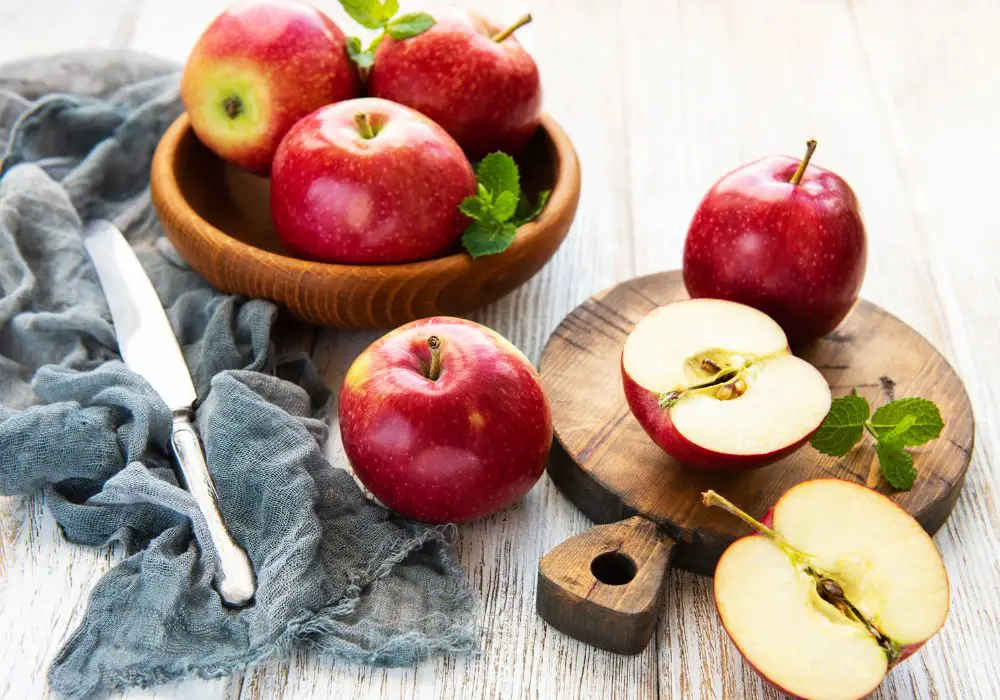
Here are answers to some frequently asked questions about apples’ effects on oral hygiene:
Are apples acidic enough to erode enamel?
Yes, apples contain malic and ascorbic acid. While less acidic than citrus fruits, over time, apples could weakly erode and demineralize enamel.
What about apple juice and applesauce?
The sugars and acids concentrate more in apple juice, making it worse for teeth than whole apples. Applesauce has less exposure on teeth but is still acidic. Both lack fibers that clean teeth like whole apples.
Can I use apple cider vinegar for whiter teeth?
No – apple cider vinegar is highly acidic and abrasive. It erodes enamel, making teeth more yellow as the inner dentin shows through. Avoid vinegar and lemon juice for whiter teeth.
Should I eat apples with braces?
You can eat crisp apples with braces as long as you clean thoroughly afterwards. Use a special flosser or irrigator to remove food debris the braces wires and bands trap. Acid and sugar lingering promotes cavities.
Do apples stain teeth?
Yes, apples contain tannins that can temporarily darken teeth. But unlike coffee or wine stains, apple stains are superficial and brush away easily. Just be sure to brush after eating apples.
Key Takeaways on Apples and Dental Care

- Apples provide vitamins, polyphenols, and saliva flow that aid oral health marginally. But apples also contain acids and sugars harmful to enamel.
- Eating apples alone cannot sufficiently prevent cavities compared to brushing, flossing, fluoride, dental visits, xylitol, and other proven protectants.
- Enjoy apples in moderation as part of a balanced diet. Combine with dental treatments and proper brushing habits for optimal results.
- Rinse mouth after eating apples. Wait 30+ minutes before brushing to allow softened enamel to reharden.
- For kids, emphasize brushing with fluoride toothpaste over apple consumption for robust protection against childhood cavities.
While apples promote overall wellness, rely on professional dental care, fluoride, brushing, and flossing as your main cavity fighters. With smart habits, apples can play a small supporting role in preventing tooth decay.
Conclusion
Apples alone cannot adequately prevent cavities or strengthen enamel. While containing some beneficial components like vitamin C and polyphenols, apples also include sugars and acids harmful to tooth surfaces. Simple apple consumption is no substitute for proper brushing, flossing, fluoride exposure, dental cleanings, and other professional treatments. However, when combined with dedicated oral hygiene habits, occasional apples may help support dental health rather than erode enamel. Be sure to rinse the mouth after eating apples and wait 30+ minutes before brushing. With consistent home care and professional cleanings, apples can be part of a balanced diet and dental care routine focused on actively fighting cavities.
FAQ
Q1: How soon after eating an apple should I brush my teeth?
Wait at least 30 minutes after eating apples or any acidic food before brushing teeth. It takes about 30 minutes for softened enamel to reharden after exposure to acid. Brushing too soon can remove more enamel mineral than necessary.
Q2: What natural remedies strengthen enamel besides apples?
Some other natural options to strengthen enamel include green tea, milk, cheese, parsley, cloves, coconut oil, aloe vera, and baking soda. However, frequent brushing and fluoride treatments remain the most effective ways to promote remineralization.
Q3: Can apples really clean your teeth and gums?
The fibrous texture of apples can provide some cleansing benefit by mechanically scrubbing the surfaces of teeth and gums. However, this light scrubbing cannot replace daily brushing and flossing to effectively disrupt and remove plaque.
Q4: Are some apple varieties better for dental health than others?
Tart Granny Smith apples tend to be more acidic than sweeter Fuji or Gala apples. But all apples are acidic to some degree, so no one variety is best. Just follow good oral hygiene practices no matter which type you eat.
Q5: Is apple cider vinegar a good natural tooth whitener?
No, apple cider vinegar is very acidic and damages enamel. You expose teeth to unnecessary acidity and erosion. Hydrogen peroxide or baking soda mixed with strawberries make safer DIY whitening treatments. Avoid abrasives like vinegar.



